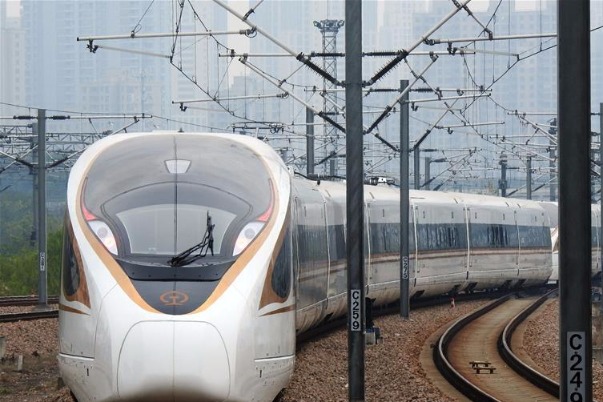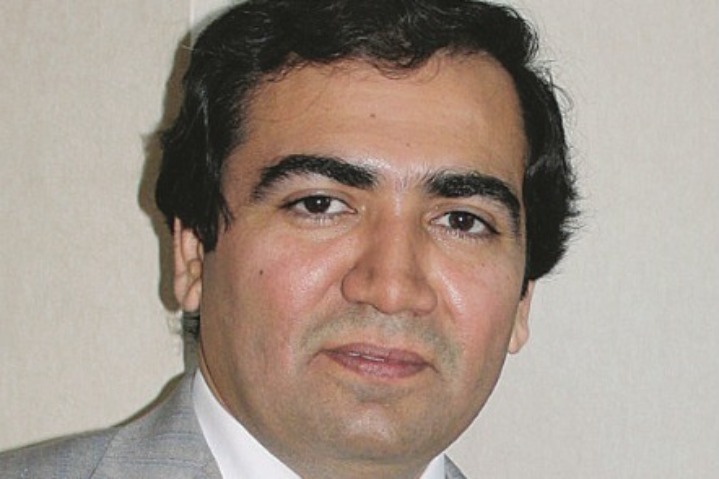Urban specialist devotes his life to sustainable development
 |
Bharat Dahiya says Asia faces a multitude of urban problems. Provided to China Daily |
It is often said that a defining moment in your life can distinguish your future.
For Bharat Dahiya that moment came in May 1989 when he was studying geography and political science at Maharshi Dayanand University, in Haryana state, west of New Delhi.
As the son of an Indian Air Force officer, it was expected he would follow his father into the military.
"I was selected to join the Indian Air Force but I had great interest to explore the world. Unable to decide which path to take, I presented my dilemma to my undergraduate teacher and mentor, Lal Chand Sir," Dahiya said.
"Like a fabled guru from ancient India, Lal Chand Sir didn't answer my question directly but converted it into two options: 'If you are tired of books and exams, and want to settle down, then a job is an option. But if you have an unflinching desire to learn and explore new frontiers, that is another story.' Then he asked me to think it over at length," he said.
"I didn't take even half a minute to decide, and here I am."
Growing up in different cities as his father took posts at different air force bases, the young Dahiya saw a great deal of India.
"The older I got, the more I took in my surroundings. I started to see how many people lived in poverty, surviving in run-down, overcrowded housing with inadequate water supply and poor infrastructure," Dahiya said.
"That was the tipping point …realizing things could be better."
Since then, he has devoted his life to helping national and local governments develop "sustainable and livable" cities.
He has written extensively on the subject and has worked for the World Bank, the Asian Development Bank and United Nations agencies.
Dahiya was a key urban adviser to the government of Mongolia, as the country underwent economic transition and rapid urbanization over the past decade. He successfully led projects in pro-poor urban planning and sustainable urban development in Ulaanbaatar — the world's coldest capital.
Dahiya combines public policy analysis, development practice and academic research aimed at tackling social, economic, environmental and governance issues in the global urban context.
"Theory and practice cannot remain separate given the urban or other challenges of the 21st century. Combining them is the need of the hour," he said.
Dahiya is a member of the Urban Knowledge-Action Network Development Team of Future Earth, a major research platform launched in 2015 to advance "global sustainability science". He is also associated with the International Development and Public Policy Alliance, which is an alliance of renowned development and public policy schools from around the world.
He is also the book series editor for Advances in 21st Century Human Settlements by the German publishing house Springer. The series has launched six books on issues such as smart cities, community-based urban development and urban public space.
"My problem is trying to find enough hours in the day to fit it all in," he said from his office at Chulalongkorn University in Bangkok, Thailand.
While still in his 30s, Dahiya conceptualized and coordinated the UN's first-ever State of Asian Cities report for 2010/11.
Hailed as a "benchmark report", it reviewed the demographic, economic, poverty, environment and governance dimensions of contemporary Asian cities and their ongoing urbanization.
He sees urbanization and climate change as the two major issues of this century.
"Climate change affects us all but the urbanization process affects every city differently. We still don't know what the full impact of climate change will be," he said.
"Some cities are so overcrowded and threatened by the impacts of climate change that nothing can be done except build new ones with all the right planning and infrastructure," Dahiya said.
He explained why Asia faces a multitude of urban problems.
"There are several factors. First, given its sustained economic growth since the mid-20th century, Asia has been urbanizing much faster than Europe, North America or Latin America," he said.
"Second, multifarious problems related to poverty and inadequate services, waste and pollution caused by manufacturing and population concentration, and consumption of resources and generation of greenhouse gas emissions are all occurring at the same time in Asian cities," Dahiya added.
"Third, acting as 'engines of economic growth', cities generate over two-thirds of GDP in many countries. Governments want their cities to continue to generate such a high share of national economic output given their higher factor productivity and, therefore, are pumping investments into urban infrastructure and services that further accelerate urbanization."
Dahiya said China has utilized the urbanization and economic growth equation with considerable success.
"The Chinese political leadership aims for policy clarity and continuity, and this has helped the country's urbanization policy," he said.
"For instance, China has been practicing 'experimentalist governance.' This means that a policy can be formulated, pilot experiments carried out, then upscaling done with necessary adjustments.
"Contrary to the general view, China has a highly decentralized system of governance. City governments, who understand local conditions better, have a high degree of autonomy to make policy decisions," he added.
The Chinese experience provides several lessons for others to follow, in Dahiya's view.
"When I started studying urbanization back in the early 1990s, urban issues did not figure high on the list of subjects students were taking," he said.
"Today it is a different story. Urbanization, sustainability, and climate change are major areas of study in universities around the world. There is more focus on the way we live and what we consume. And what is more, people are concerned about the environment and the planet."
The highlight of Dahiya's academic career was winning a scholarship in 1996 to study at the University of Cambridge, in the United Kingdom, where he did his PhD.
"My doctoral research, on urban governance, planning and environment in India took me several times from Cambridge to Chennai, one of the first cities in the world to pilot UN-Habitat's Sustainable Cities Programme, which was my case study." UN-Habitat is the UN's entity for human settlements.
Soon after his PhD, he was invited to the World Bank headquarters in Washington DC to conduct the first-ever review of the bank's lending for urban environmental sustainability. Based on this global review, he coauthored the book, Urban Environment and Infrastructure: Towards Livable Cities.
Dahiya believes there is still a long way to go before we make our cities nice places to live. "But we are seeing some positive steps being taken in many countries around the world," he said.
"We must continue to expand our knowledge horizons and keep searching for better solutions."
karlwilson@chinadailyapac.com


















